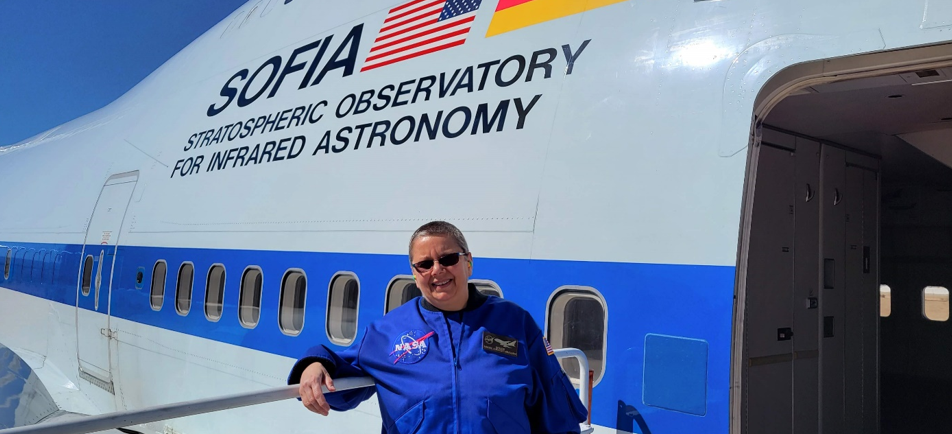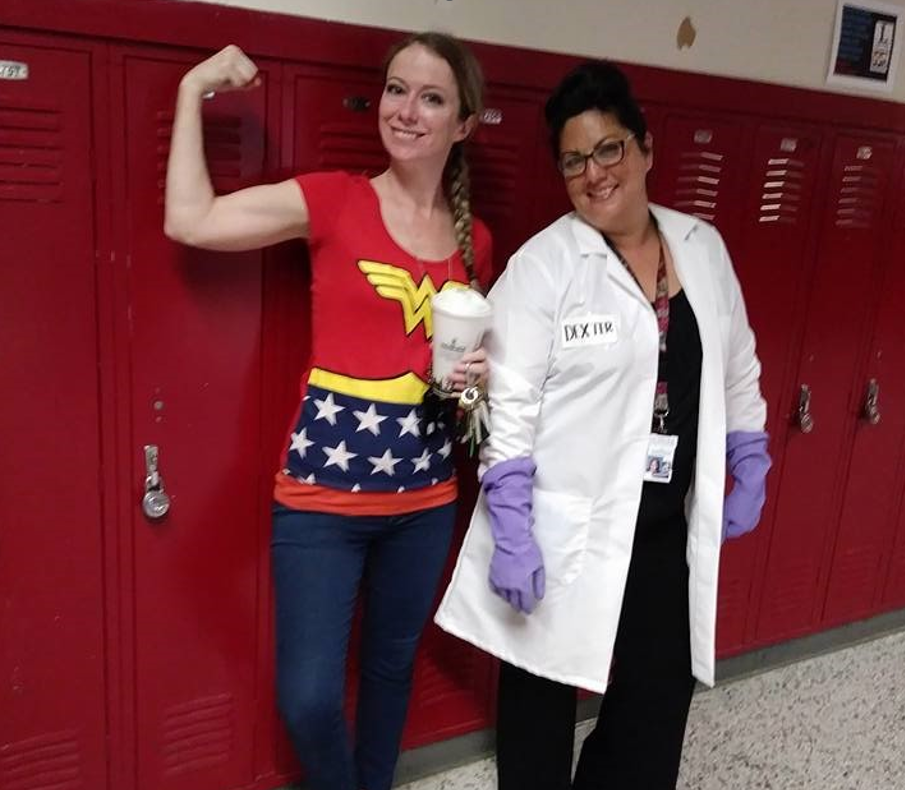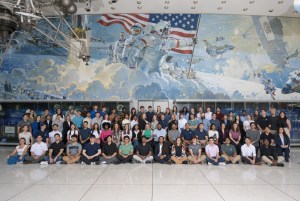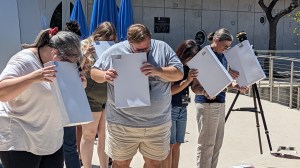3 min read
This summer, NASA welcomed interns with professional teaching experience to help make the agency's data more interactive and accessible in the classroom. Their efforts are an important step in fostering the education and curiosity of the Artemis Generation of students who will shape the future workforce.
Diane Ripollone: Making Activities Accessible for Low-Vision Students

A 35-year-veteran educator, Diane Ripollone teaches Earth science, astronomy, and physics to high school students in North Carolina. In her decades of experience, she's seen firsthand how students with physical challenges can face difficulties in connecting with lessons. She decided to tackle the issue head-on with her internship.
Ripollone supports the My NASA Data Program, which provides educational materials to interact with live data collected by NASA satellites, observatories, and sensors worldwide. As a NASA intern, she has worked to create physical materials with braille for students with- vision limitations.
"It's a start for teachers," Ripollone said. "Although every classroom is different, this helps to provide teachers a jumpstart to make engaging lesson plans centered around real NASA data." Her NASA internship has excited and inspired her students, according to Ripollone. "My students have been amazed! I see their eyes open wide," she said. "They say, 'My teacher is working for NASA!'"
Felicia Haseleu: Improving Reading and Writing Skills
North Dakota teacher Felicia Haseleu never imagined she'd be a NASA intern until a colleague forwarded the opportunity to her inbox. A teacher on her 11th year, she has seen how COVID-19 has affected students: "It's caused a regression in reading and writing ability," a shared impact that was seen in students nationwide.
A science teacher passionate about reading and writing, Felicia set out to utilize these in the science curriculum. As an intern with My NASA Data, she's prepared lesson plans that combine using the scientific method with creative writing, allowing students to strengthen their reading and writing skills while immersing themselves in science.
Haseleu anticipates her NASA internship will provide benefits inside and outside the classroom.
"It's going to be awesome to return to the classroom with all of these materials," she said. "Being a NASA intern has been a great experience! I've felt really supported and you can tell that NASA is all encompassing and supports one another. From the camaraderie to NASA investing in interns, it's nice to feel valued by NASA."
Teri Minami: Hands-on Lesson for Neurodivergent and Artistic Students

"I've never been a data-whiz; I've always connected with science hands-on or through art," said NASA intern Teri Minami, a teacher of 10 years in coastal Virginia. She cites her personal experience in science to guide her to develop lessons using NASA data for neurodivergent students or those with a more artistic background.
Through her NASA internship, she aims to create lesson plans which allow students to engage first-hand with science while outdoors, such as looking at water quality data, sea level ice, and CO2 emissions, taking their own measurements, and doing their own research on top of that.
Although many people associate being an intern with being an undergraduate in college, NASA interns come from all ages and backgrounds. In 2024, the agency's interns ranged in age from 16 to 61 and included high school students, undergraduates, graduate students, doctoral students, and teachers.
Interested in joining NASA as an intern? Apply at intern.nasa.gov.









